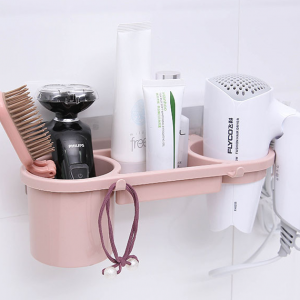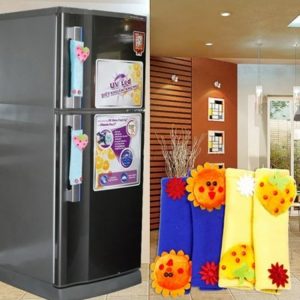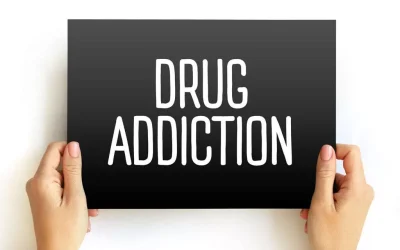- ×
 HỘP ĐỰNG MÁY SẤY 1 × ₫89.000
HỘP ĐỰNG MÁY SẤY 1 × ₫89.000 - ×
 ÁO TRÙM MÁY GIẶT MỚI 6,5KG - 8KG CỬA TRƯỚC 1 × ₫80.000
ÁO TRÙM MÁY GIẶT MỚI 6,5KG - 8KG CỬA TRƯỚC 1 × ₫80.000 - ×
 BỘ 2 TAY CẦM TỦ LẠNH 1 × ₫49.000
BỘ 2 TAY CẦM TỦ LẠNH 1 × ₫49.000 - ×
 CÂY LAU KÍNH ĐA NĂNG XOAY 360 ĐỘ 1 × ₫68.000
CÂY LAU KÍNH ĐA NĂNG XOAY 360 ĐỘ 1 × ₫68.000
Tổng phụ: ₫286.000
Content
The FHE Health team is committed to providing accurate information that adheres to the highest standards of writing. This is part of our ongoing commitment to ensure FHE Health is trusted as a leader in mental health and addiction care. You don’t ever want to put yourself in this type of experience alone, especially without having tools or strategies for overcoming the way triggers make you feel.
A study from Marquette University pointed out that stress rendered people in recovery more vulnerable to other relapse triggers. Researchers followed the cocaine use patterns of stressed and unstressed rats and used a low dose of cocaine as a trigger. The stressed rats’ responses to the trigger mirrored those of people during relapse. High-risk places remind former drug users of the times they engaged in substance use. Walking or driving through places where they used to drink or consume drugs can spark a memory connected to drug or alcohol use.
Triggers for relapse are situations that remind individuals of their drug use. Triggers are psychological, emotional, social and situational cues that can induce cravings. Strong cravings that crop up in response to triggers can be difficult to curb without the right support and resources. In the recovery world, a trigger is a sensory experience internal and external triggers that can lead someone to misuse substances. When people feel triggered, it is often because they are reminded of something that is difficult to deal with on an emotional or physical level. This topic is especially important to recovery, as trauma and mental health struggles can be found at the root of many peoples’ substance use disorder.
Most people in substance use recovery have more than one trigger. Understanding what they are, how to recognize the signs and how to stop them from leading you down a relapse path is essential to your long-term recovery. Learning to cope with the stresses of daily living without turning to alcohol or drugs is not easy for someone who has repeatedly used these substances. After months or years of chemical dependency, the brain must relearn how to live a sober lifestyle. Mindfulness and meditation are two of the most effective coping strategies for managing addiction triggers. Mindfulness is a practice that encourages focus on the present moment and can help to reduce stress, improve concentration and increase emotional regulation.
At a molecular level, frustration is a globally experienced feeling of mismatched expectations. For example, when you expect to get out of work on time and then are stuck with some extra last-minute work that will keep you in the office longer, you get frustrated. If you are in addiction recovery, frustration might lead to a feeling of helplessness or anger and anxiety that could prompt cravings for your substance of choice. If you are starting to consider relapse, you may find that you are exposing yourself to possible triggers, even subconsciously.
In the process, you will be able to better maintain your abstinence and find it easier for you to recover. One of the cornerstones of treatment options for addiction recovery is education about triggers and healthy ways to cope with them. Learning healthy ways to cope with triggers is one of the ways that an individual can make their recovery able to last many years. Identifying triggers is so important because once someone in recovery can articulate what they are; they can incorporate them into a relapse prevention plan.
Some people experience cravings when they’re feeling good because they want to feel even better, while the same person may also experience cravings when they’re feeling especially down or sad. Although these numbers may be discouraging, the important thing to remember is that relapse is not a sign that addiction treatment failed. Drug detox, rehab, and other forms of treatment https://ecosoberhouse.com/article/10-healthy-ways-to-cope-with-stress/ are not cures for addiction, and substance use disorders cannot be cured. Rather, research shows evidence-based treatment methods can help people manage their addiction(s) more effectively. Maintaining one’s recovery despite the existence of triggers can be overwhelming at times. Triggers can arrive seemingly out of nowhere and result in serious cravings for substances.
Some of the things that can cause anger are external events (certain behaviors of other people, general life circumstances, an overload of stress, etc. ) or internal events (remembering something that made you angry, thinking about how things "should" be, worrying or brooding about personal problems, etc. ).
This ongoing fight increases their vulnerability to cravings, which may result in a potential relapse. It’s valuable to work with your therapist to learn ways to manage your triggers in a healthy manner. This could include cognitive behavioral therapy, a method of learning how to change negative thoughts so you don’t relapse. Your therapist can help you determine the best practices for managing your triggers. Other common triggers may include exposure to people or places familiar with that experience.
Think about it, what does it mean for someone to be addicted to something? Typically, when we think about someone being addicted to something our minds go to tv, drugs, alcohol, phones, etc. but the things we are referencing are – for the most part – negative addictions. Connect with a licensed therapist for porn addiction and mental health counseling. Contact a treatment provider today to find your way to peace and sobriety. Get professional help from an online addiction and mental health counselor from BetterHelp. Internal triggers have the potential to be used in a wide range of industries, including healthcare, education, and finance.
This is because there is usually an abundance of drugs and alcohol in these places. It can also be difficult to avoid social pressure in these settings. If you are going to attend a party or go out drinking, then make sure you have a relapse prevention plan in place so that you know how to handle any potential triggers.
Although it is important to increase your awareness of your triggers, doing so can cause some distress. Some people might become triggered by trying to identify their triggers. Therefore, before you take steps to identify your triggers, ensure you have a safety plan in place in case you experience some distress. This therapeutic fact of giving a new meaning to the trigger does not exclude the traditional therapeutic avoiding of the trigger, which is an urgent aim at the beginning of the treatment.

When you can learn to identify your triggers, you’ll be able to start working towards a means to cope with them. If seeing your abuser at your children’s school events causes you to freeze inside, have friends save a seat for you. For example, you might inadvertently come into contact with a news story or conversation that reminds you of your traumatic event. From a therapeutic view, the capability of psychotherapeutic treatments (alone) has been demonstrated to restoring the biological normality of brain structure and function (Barsaglini et al., 2014).